Pyworthy panels would cover 2,600 tennis courts
A huge solar farm in Torridge is to go ahead, despite huge opposition from the surrounding community who have described the plans as an “insult.”
Torridge District Council’s plans committee voted five-to-four in favour of granting planning permission for the Derril Water Solar farm in Holsworthy.
The 163-acre facility will be on a greenfield site described as roughly the size of 2,600 tennis courts. The solar panels will be a maximum of 2.8 metres in height and CCTV cameras on poles no taller than 3.5 metres.
The company behind the plans, Renewable Energy Systems Ltd (RES), says it will provide low-cost low-carbon electricity for around 12,000 homes, with minimal impact on the surrounding landscape, and will support the local economy.
However many local residents are outraged, and have submitted more than 200 objections. Mark Marriott, who owns holiday lets which will have a view directly overlooking the solar farm, spoke on their behalf at the plans meeting. He said: “Without doubt, we’re in support of renewable energy in the right place, but we have to be innovative and not just role over to big industry who want to make money.
“COP26 has highlighted the need to deindustrialise and regenerate green spaces – this proposal does exactly the opposite.”
Mr Marriott said planning officers had largely ignored the concerns of the community, adding: “For Torridge to permit such a disengaged business partner to destroy local amenities, farmland, jobs and livelihoods by turning our parish into an industrial centre for profit is an insult to the community and the worst kind of greenwashing possible – destroying land in the name of the climate crisis.”
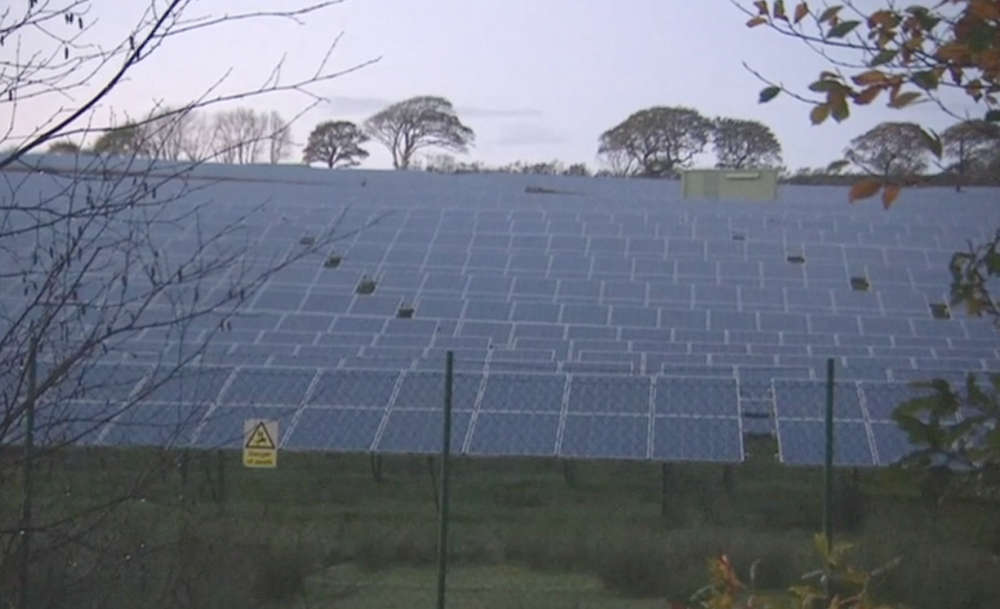
In a written statement submitted to TDC before its decision, Pyworthy Parish Council said it objected to the development “in the strongest possible terms.”
It argued that the solar farm will create extra traffic and would result in the closure of a successful dairy farm and the loss of valuable farmland. It said the farm would ruin the look of the surrounding landscape, negatively impact wildlife and have a “massively negative effect on local tourism.”
The parish council also had concerns about potential noise and said proposals to screen the site had so far been “completely inadequate.”
It argued that Pyworthy had already made a major contribution to renewable energy in the area through nearby renewable energy projects, including Crinacott Solar Farm in the village. The new solar farm, they said, is “a step too far.”
In contrast, neighbouring Bridgerule Parish Council raised no objections.
An independent landscape and visual impact assessment concluded that the development, combined with the nearby Criacott solar farm, would have a “moderate adverse cumulative effect in terms of its impact on landscape character,” but added “the effects of the development would not be noticeable” outside of the surrounding 2 km.
One member of the public told the committee that one reason to object was the “slavery” conditions in which the solar panels would potentially be made in Chinese factories.
Speaking to BBC Spotlight before the decision, Rachel Anderson, a spokesperson for RES, said: “Everyone has an opinion and we have a democratic planning process. Whilst we understand that some people are against our project we do realise it is supported locally as well and we do hope we can bring forward a project that people can really feel is beneficial to the local area.”
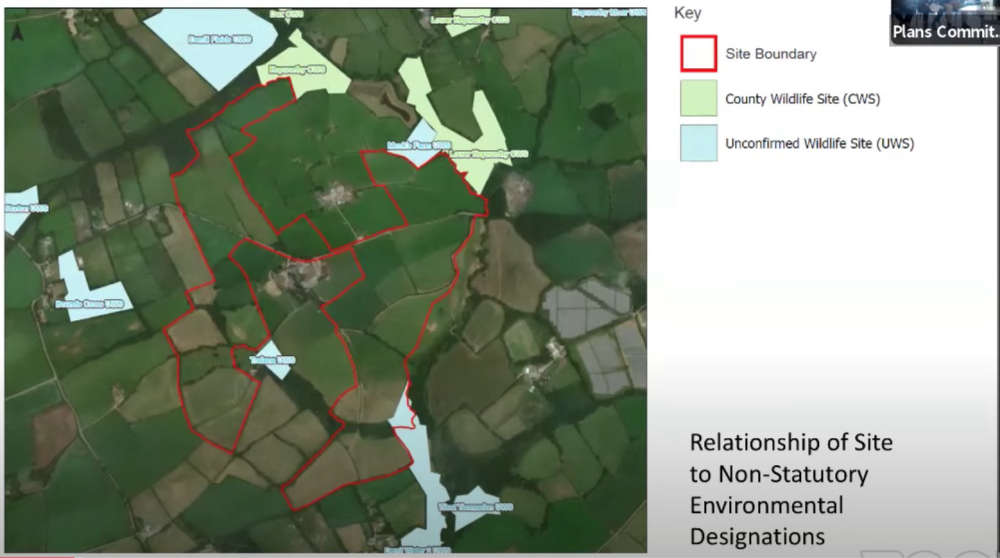
Ms Anderson said the Derril Water solar farm would actually improve nearby biodiversity by increasing grassland and wildlife. She added: “We do often find once a project is built people realise it’s not as bad as it might have been,” and that the project could bring the council £160,000 per year in business rates. “We do see it as a really good economic benefit and employment opportunity in the south west,” she said.
Some councillors questioned how much of a difference the solar farm would make to the area. Councillor Rosemary Lock (Conservative, Two Rivers & Three Moors) said the landscape of the solar farm was already “dominated by the huge electric pylons that are there already.”
Cllr Lock also said that she recognised that there had been a lot of opposition to the plans but noted that single households had submitted multiple objections on the council’s planning portal, concluding that the overall number of objections should be “taken with a pinch of salt.”
Councillor Peter Christie (Greens, Bideford North) said: “We have to have some renewables and they have to go somewhere and unfortunately where they can go is limited.”
However, councillor Chris Leather (Independent, Northam), chair of the plans committee, argued that the nearby area had already given up its “fair share” of land to renewable energy and that the development would, alongside the renewable energy projects already built nearby, have too much of a negative effect on the character of the area. He said he was disappointed that there had no environmental impact assessment had been made.
Councillor Richard Boughton (Conservatives, Hartland) recognised there were pros and cons to the development and admitted he was “slightly torn on the issue,” before voting against it.
In the end – and after a long debate – the plans committee narrowly voted in approval of the new solar farm. As part of the approval, several conditions were made to limit the disruption on residents and surrounding habitat, both in its construction phase and when the solar farm is up and running.
The attached video report from BBC Spotlight includes interviews with concerned residents and was filmed before Torridge approved the plans.
 Fire destroys two part-built houses on new development
Fire destroys two part-built houses on new development
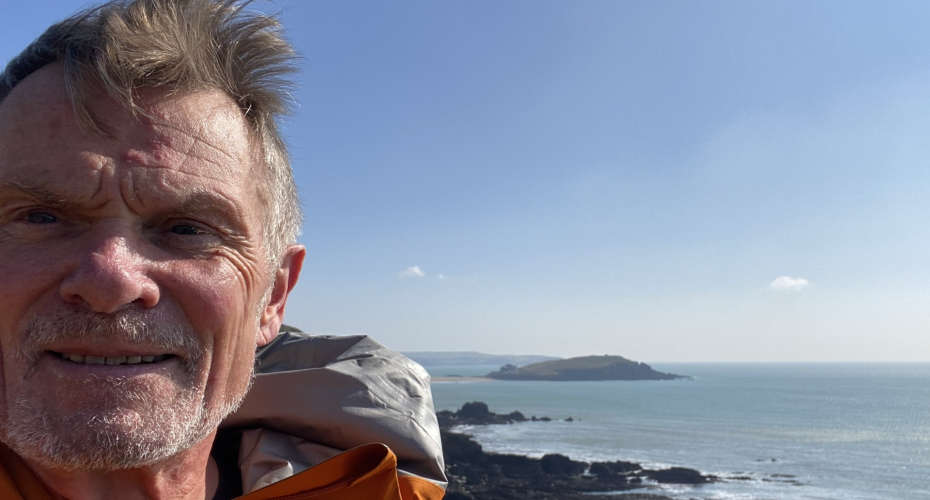 Devon man to run round mainland Britain
Devon man to run round mainland Britain
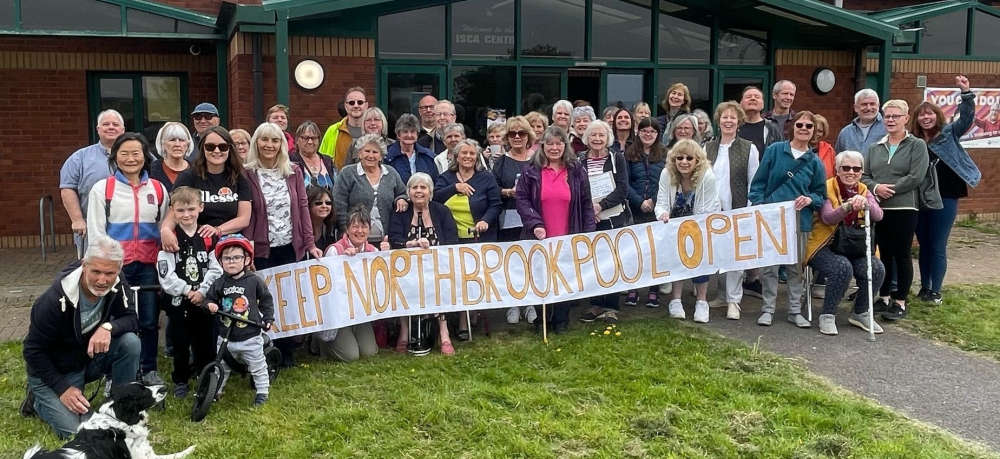 Decision on Exeter swimming pool due this week
Decision on Exeter swimming pool due this week
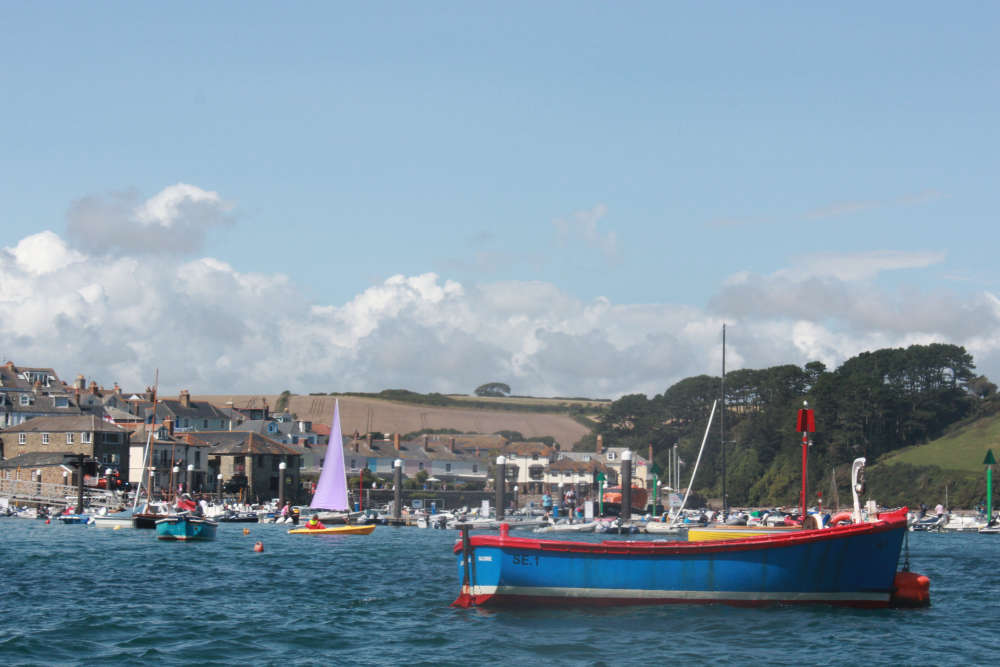 South Hams tourism down, but average spending up
South Hams tourism down, but average spending up
 More East Devon council workers leaving
More East Devon council workers leaving
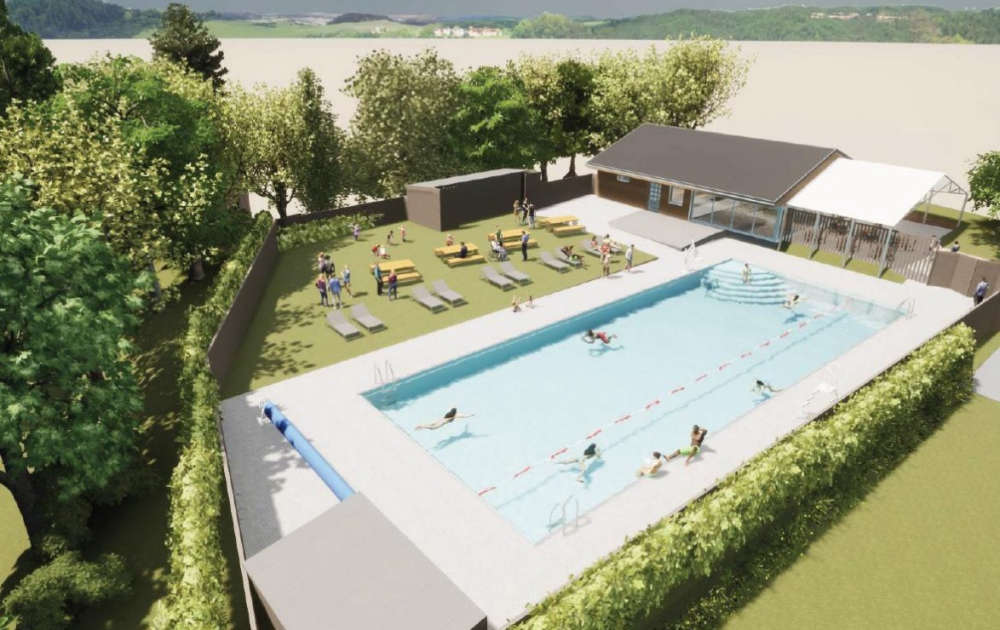 Dartington pool expected to reopen
Dartington pool expected to reopen
